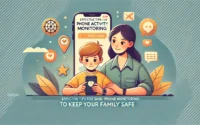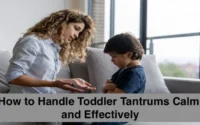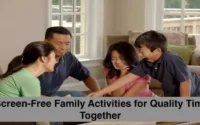Are You Your Kids’ Best Friend? Known if It is Right or Wrong
Being a parent comes with many roles. You guide, protect, and teach your children. But should you also be their best friend? This question puzzles many parents today. Let’s dive into whether it’s right or wrong to mix these roles.
When you think of a “best friend,” you picture someone who shares secrets, enjoys fun moments, and supports you unconditionally. But does that fit into parenting? A parent’s job often includes setting rules, teaching life lessons, and enforcing boundaries. The challenge lies in how these two roles—parent and friend—interact.
Pros of Being Your Child’s Best Friend
- Emotional Closeness: As a best friend, your child might feel more comfortable opening up to you about their worries. They may be more likely to talk to you about school, friendships, and personal problems.
- Trust and Comfort: Kids who see their parents as friends tend to trust them more. They feel safe sharing secrets, knowing they won’t be judged.
- Stronger Bond: Over time, the parent-child bond can become much stronger. As your kids grow, this bond helps them feel supported.
Cons of Being Your Child’s Best Friend
- Blurred Boundaries: Being too friendly can confuse kids about who’s in charge. If they see you more as a friend than a parent, they may not take rules seriously.
- Challenges with Discipline: It’s hard to enforce rules if your child sees you as their buddy. They might think they can bend or break the rules without consequences.
- Unhealthy Dependency: While emotional closeness is good, kids need to learn independence. Relying too much on a parent can prevent them from solving problems on their own.
Finding the Balance
It’s possible to be close to your kids while still maintaining your authority as a parent. The key is finding the right balance.
- Parent first, friend second: Your kids need boundaries. When you’re always their “best friend,” they might expect you to let them do whatever they want. Set rules but still listen to their feelings.
- Healthy communication: Encourage open talks but stand firm on important rules. Be approachable, so your kids feel safe talking to you about anything, but also let them know when a line is crossed.
- Be a guide, not just a buddy: It’s great to be there for your kids, but don’t forget to guide them. As they grow, they’ll need more than just a friend—they’ll need someone who can help them navigate life.
Different Perspectives: What the Experts Say
Many psychologists and parenting experts agree that parents should not aim to be just their children’s best friends. Dr. Laura Markham, a clinical psychologist, explains that “children need structure and boundaries to thrive.” It’s important to have a nurturing relationship, but children also need to understand that parents are in charge.
Experts often suggest parents focus on being a supportive guide. You can still be close to your kids, but always maintain the role of a mentor who helps them grow into responsible adults.
For Example,
Let’s say a parent, Julie, tried to be her daughter’s best friend. They laughed, shared secrets, and spent all their time together. But when Julie had to discipline her daughter for poor grades, the dynamic changed. Her daughter felt betrayed and stopped confiding in her.
On the other hand, Maria balanced being a parent and friend. She allowed her son to express himself and listened to his concerns. But when rules needed to be followed, she stood firm. Her son respected her authority while still feeling close enough to share his struggles.
Tips for Maintaining a Healthy Parent-Child Relationship
- Active listening: Always listen to your child’s thoughts and feelings. This helps them feel valued, even if you don’t always agree.
- Setting boundaries: Boundaries help children feel secure. Let them know what’s acceptable and what’s not, so they understand limits.
- Respect and trust: Mutual respect builds a strong bond. When your child knows you respect their feelings, they’re more likely to respect your rules.
it’s not about choosing between being a parent or a best friend. It’s about finding the right balance. Your children need a friend who listens and supports them, but they also need a parent who guides them, sets boundaries, and teaches them responsibility. So, be both—just don’t forget to parent first and be a friend second.


